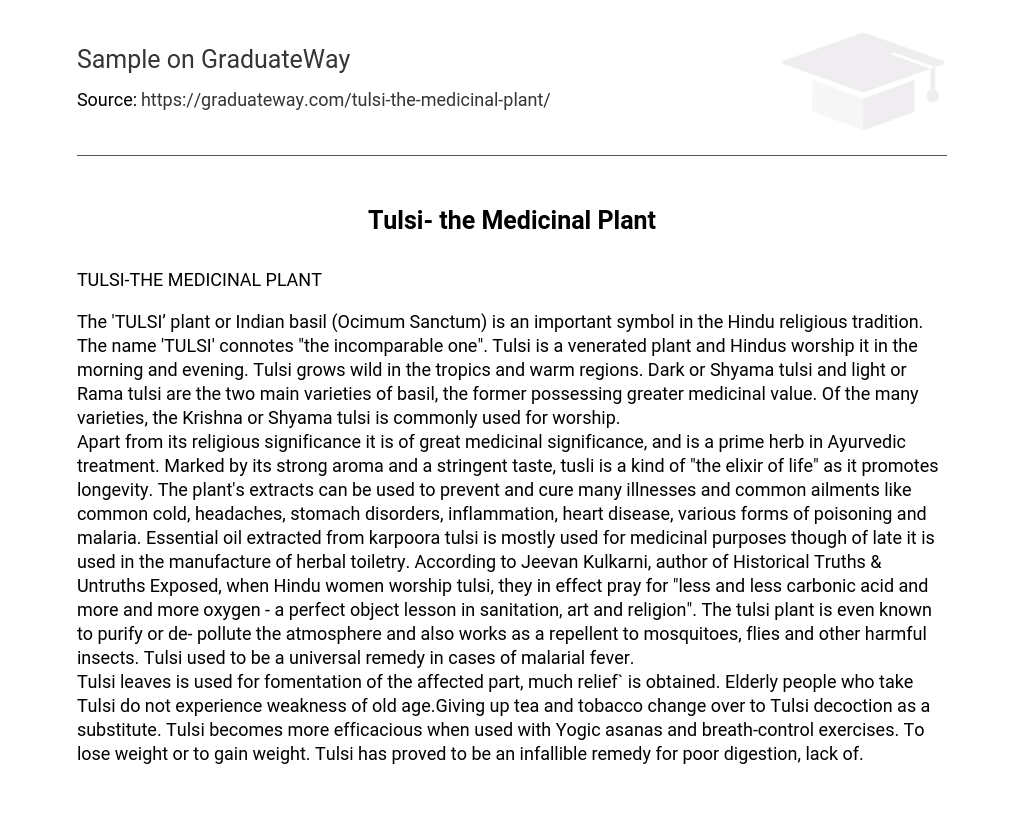TULSI-THE MEDICINAL PLANT
The ‘TULSI’ plant or Indian basil (Ocimum Sanctum) is an important symbol in the Hindu religious tradition. The name ‘TULSI’ connotes “the incomparable one”. Tulsi is a venerated plant and Hindus worship it in the morning and evening. Tulsi grows wild in the tropics and warm regions. Dark or Shyama tulsi and light or Rama tulsi are the two main varieties of basil, the former possessing greater medicinal value. Of the many varieties, the Krishna or Shyama tulsi is commonly used for worship.
Apart from its religious significance it is of great medicinal significance, and is a prime herb in Ayurvedic treatment. Marked by its strong aroma and a stringent taste, tusli is a kind of “the elixir of life” as it promotes longevity. The plant’s extracts can be used to prevent and cure many illnesses and common ailments like common cold, headaches, stomach disorders, inflammation, heart disease, various forms of poisoning and malaria. Essential oil extracted from karpoora tulsi is mostly used for medicinal purposes though of late it is used in the manufacture of herbal toiletry. According to Jeevan Kulkarni, author of Historical Truths & Untruths Exposed, when Hindu women worship tulsi, they in effect pray for “less and less carbonic acid and more and more oxygen – a perfect object lesson in sanitation, art and religion”. The tulsi plant is even known to purify or de- pollute the atmosphere and also works as a repellent to mosquitoes, flies and other harmful insects. Tulsi used to be a universal remedy in cases of malarial fever.
Tulsi leaves is used for fomentation of the affected part, much relief` is obtained. Elderly people who take Tulsi do not experience weakness of old age.Giving up tea and tobacco change over to Tulsi decoction as a substitute. Tulsi becomes more efficacious when used with Yogic asanas and breath-control exercises. To lose weight or to gain weight. Tulsi has proved to be an infallible remedy for poor digestion, lack of.





